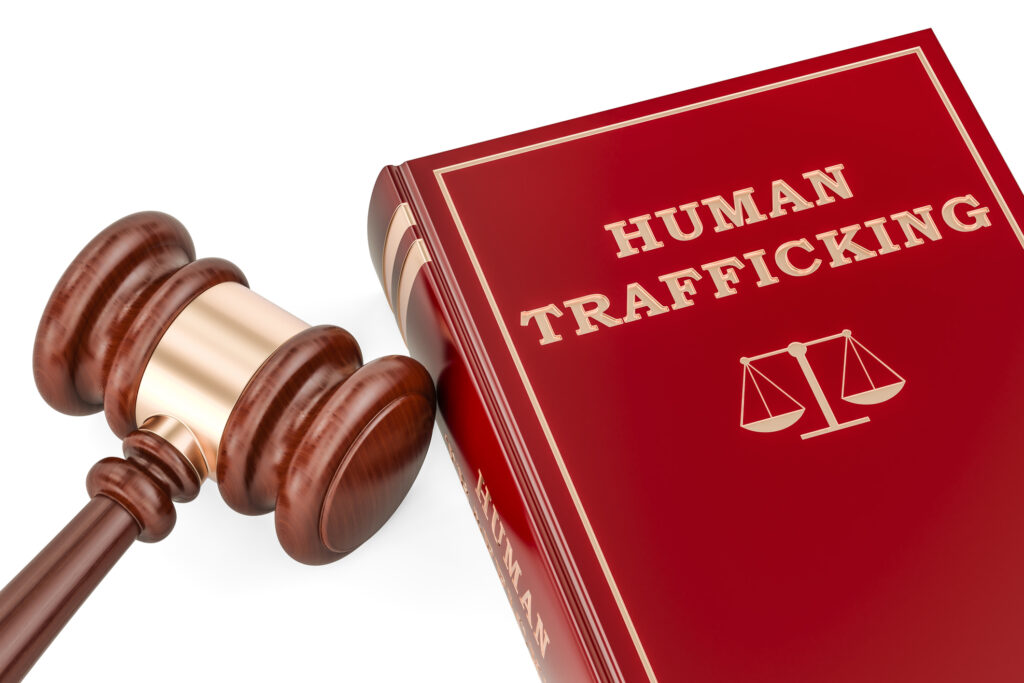This weeks question comes from Lydia in San Francisco, who writes:
Q: I am originally from Jamaica. I learned of an opportunity to work in San Francisco as a hotel housekeeper. He told me that if I paid him he would get me a job in the United States. I was told I would earn $2,000 a month plus overtime. When I arrived in San Francisco, things were different. I was employed by an agency that contracted with hotels and worked 70 hours a week. The agency took my passport for “safekeeping” for the money they charged me to come here and for rent in crowded company housing. No matter how many hours I worked, I didn’t get overtime, and the fees they charged continued to rise. I could never break even. Eventually, I collapsed at work and was taken to a hospital where I met a social worker. She told me that it sounded like I was a victim of human trafficking.
Could I be a victim of Human Trafficking?
A: Thank you for your question, Lydia. What a horrific series of events to go through. I am sorry that this happened to you. Based on the information you provided, it is possible that you have been the victim of Human Trafficking under California law. Human trafficking can take many forms and is not limited to the sexual exploitation we hear so much about and see in movies. In fact, human trafficking can and does occur in legal and legitimate businesses such as restaurants, hotels and manufacturing plants.
Unfortunately, there are many common misconceptions about what human trafficking is, and who has been a victim. For example, human trafficking does not require physical restraint or force. Psychological means of control such as threats or fraud can suffice. In your case, the unreasonable payroll deductions, as well as the holding on to your passport because of your “debt” can meet the “control” requirement of a human trafficking claim.
Many people also confuse human trafficking with human smuggling. While each can take a severe toll on the survivors, they are separate claims. Human trafficking occurs regardless of whether there was any transportation or illegal border crossing. (See Cal. Civ. Code § 52.5 and Cal. Penal Code § 236.1). Smuggling, on the other hand, would require transportation over a border. With hotel workers like you, it is not uncommon, for people to be induced to come to California through misrepresentation of the type of work or amount of pay. Often, a recruiter will work directly with immigration officials to ensure a legal visa is issued.
The California legislature recently took steps to help remedy the misunderstandings and to bring attention to the issue so that victims, or those who may come into contact with them, may more easily recognize human trafficking. In September 2018, two laws were passed requiring certain businesses to post human trafficking notices and trainings.
SB 970 requires training of new employees at hotels and motels. The employer must provide at least 20 minutes of training and education on how to identify, respond to and report human trafficking. After an initial Jan. 1, 2020 deadline for training, each new worker must receive training within six months of being hired and again every 2 years.
AB 2034 requires the posting of notices regarding Human Trafficking in hotels, motels, bus and truck stops, as well as several other business establishments where trafficking is prevalent or may be seen. The notice must be in, English, Spanish, and whichever other language is most widely spoken in that county. The notice must state that if “you or someone you know is forced to engage in any activity and cannot leave — whether it is commercial sex, housework, farm work, construction, factory, retail, restaurant work, or any other activity they may text of call one of the human trafficking hotlines.
AB 2034 also requires certain businesses to conduct employee training regarding:
- The definition of human trafficking,
- Myths and misconceptions,
- Physical and mental signs that may point to trafficking,
- Guidance on how to identify at-risk individuals,
- Guidance on how to report human trafficking, and
- Protocols for reporting human trafficking when on the job.
The first things you, or any other potential victim of human trafficking, should do is to make sure that you are safe and contact one of the hotlines. If you, or someone you know fits this description, text 233-733 (Be Free) or call the National Human Trafficking Hotline at 1-888-373-7888 or the California Coalition to Abolish Slavery and Trafficking (CAST) at 1-888-KEY-2-FRE(EDOM) or 1-888-539-2373 to access help and services. Then, call an attorney experienced in this area of law, such as the Dolan Law Firm, to help guide you through the process.










